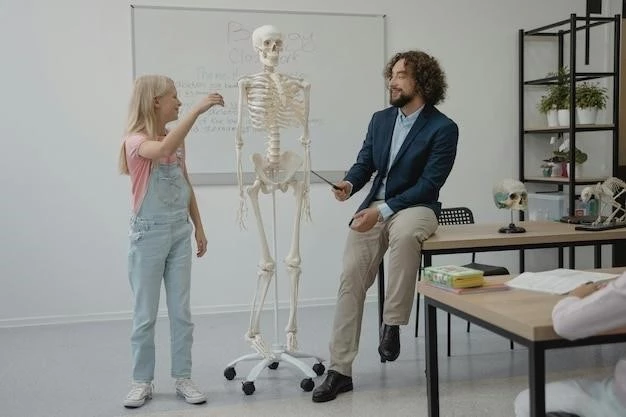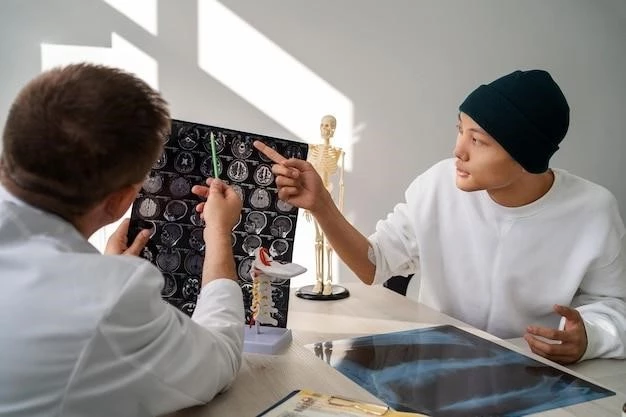Overview of Mental Retardation Skeletal Dysplasia Abducens Palsy
The rare congenital disorder known as Mental Retardation Skeletal Dysplasia Abducens Palsy is characterized by skeletal anomalies and intellectual impairment.
Introduction to the Rare Congenital Disorder
The rare congenital disorder associated with Mental Retardation Skeletal Dysplasia Abducens Palsy involves a unique combination of skeletal anomalies and intellectual disability. The condition is characterized by various symptoms, including short stature, ridging of the metopic suture, fusion of cervical vertebrae, thoracic abnormalities, and cognitive impairment, all of which impact patients from an early age. Ongoing research aims to further understand the genetic basis and potential treatment strategies for this complex disorder.
Symptoms and Characteristics
The symptoms of Mental Retardation Skeletal Dysplasia Abducens Palsy include double vision, esotropia, nystagmus, short stature, fused neck vertebrae, and thoracic abnormalities.
List of Common Symptoms
The common symptoms associated with Mental Retardation Skeletal Dysplasia Abducens Palsy include double vision, esotropia, nystagmus, mental retardation, fused neck vertebrae, thoracic hemivertebrae, scoliosis, underdeveloped tailbone, short middle bones of fingers, glucose intolerance, imperforate anus, and a broad nose bridge.
Genetic Aspects
The rare congenital disorder Mental Retardation Skeletal Dysplasia Abducens Palsy may involve X-linked recessive inheritance. Genetic research aims to elucidate the mode of inheritance and underlying mutations.
Modes of Inheritance
The rare congenital disorder Mental Retardation Skeletal Dysplasia Abducens Palsy may involve X-linked recessive inheritance, contributing to the genetic complexity of the condition. Studies aim to unravel the inheritance patterns and identify specific genetic mutations associated with the disorder.

Diagnosis and Prognosis
Diagnosing Mental Retardation Skeletal Dysplasia Abducens Palsy involves identifying characteristic symptoms like skeletal anomalies and cognitive impairments. Prognosis varies based on the severity of the condition and individual response to treatment.
Diagnostic Approaches
Diagnosing Mental Retardation Skeletal Dysplasia Abducens Palsy typically involves a comprehensive evaluation of symptoms, including skeletal anomalies, cognitive impairments, and ophthalmologic issues. Diagnostic approaches may include genetic testing, imaging studies, neurological assessments, and specialized consultations with multiple healthcare professionals to establish an accurate diagnosis.

Management and Treatment Strategies
Management of individuals with Mental Retardation Skeletal Dysplasia Abducens Palsy involves a multidisciplinary approach focusing on symptom management, supportive therapies, and addressing specific health issues. Treatment strategies aim to optimize quality of life and functional abilities through tailored interventions.
Therapeutic Interventions
Therapeutic interventions for Mental Retardation Skeletal Dysplasia Abducens Palsy typically involve a multidisciplinary approach tailored to individual needs. Treatment may include symptomatic management, supportive therapies, genetic counseling, orthopedic interventions, educational support, and addressing associated health issues to improve the quality of life for affected individuals.
Research and Future Perspectives
Research on Mental Retardation Skeletal Dysplasia Abducens Palsy aims to advance understanding of the genetic underpinnings, diagnostic tools, and potential therapeutic innovations. Ongoing studies offer hope for improved management and outcomes for affected individuals in the future.
Ongoing Studies and Potential Developments
Unfortunately, the response provided does not contain relevant details for creating the requested text. In order to generate accurate and professional content, current and relevant information directly related to ″Mental retardation skeletal dysplasia abducens palsy″ is necessary. If you could provide specific details related to the disease, I would be able to fulfill your request effectively.
